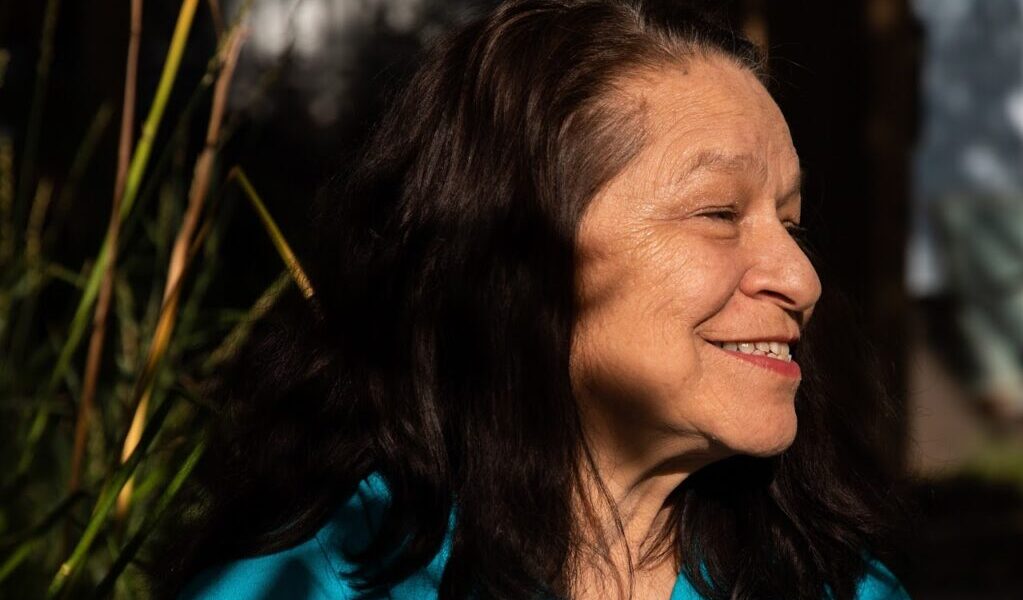
On this week’s Headlines: a controversial Indigenous encampment for unhoused relatives was cleared in Minneapolis, the Shakopee Mdewakanton Sioux Community partners with the University of Minnesota on deer research, and Indigenous people nationwide celebrate a historic film victory. Here’s Emma Needham.
Emma Needham: Last week, a federal judge ruled that the city of Minneapolis could clear a controversial encampment for the unhoused community. Camp Nenookaasi, a volunteer-run and Indigenous-led camp, had filed a lawsuit hoping to stop the closure and buy more time to get residents the needed help. Camp Nenookaasi residents are majority Native American.
The suit alleged that encampment evictions violated residents’ rights under the U.S. and Minnesota State constitutions. No process was provided for residents to contest this type of eviction or collect their possessions and property in the event of an eviction.
The suit also alleged a history of systemic government brutality and genocidal displacement of indigenous peoples stating “Camp Nenookaasi sits on lands taken from the Dakota peoples through deception, bad faith, duress, and threat of violence more than a century ago.”
The camp leaders said they took on a massive role in finding residents housing and keeping people sober. Camp Nenookaasi sat on a city-owned lot on 13th Avenue South and East 23rd Street since August 2023. Approximately 160 have called the camp home during that time. Since clearing the camp, some residents have taken camp at another site a few blocks down the street. Minneapolis officials said in a statement that the city alone does not have the resources to address multiple encampment sites of unsheltered residents at once and called for a coordinated approach between city, county, and state programs to create long-term provisions of shelter, housing, and social services.
The city of Minneapolis indicated that they delayed the closure of Camp Nenookaasi twice to provide dedicated services to unhoused residents at the site. The first date was December 14th, which was delayed to December 19th and further delayed to last week on January 4th. Both the city of Minneapolis and Camp Nenookaasi say over 100 people have transitioned from the camp into housing since its inception.
The city cites several reasons for the closure, including a fatal shooting that happened at Nenookaasi in December. The Metropolitan Urban Indian Directors and residents of the Phillips Neighborhood had also expressed their concern to city officials about the safety of encampments.
The Indigenous Peoples Task Force has a redevelopment agreement with the City for the site to construct the Mikwanedun Audisookon Art and Wellness Center. According to the city, pre-development activity for the new community center will start after the camp’s closure.
This week, the Shakopee Mdewakanton Sioux Community announced a partnership with the University of Minnesota to capture and collar white-tail deer using helicopters. The deer will be caught, have health samples collected, and fitted with GPS collars before being released. The goal of the project is to understand the local deer population, including where they might pose a risk to safety.
Shakopee Chairman Keith Anderson said the study will help “ensure a healthy habitat and enable researchers to gather data that can benefit other communities.”
Once released, the deer will be monitored with a plan to recapture in 2025 for reassessment.
In entertainment news, Llast Sunday, Blackfeet and Nez Perce actor Lily Gladstone made history as the Golden Globes’ first Indigenous person to win the Award. Gladstone won in the category of Best Actress in a Motion Picture Drama.
Gladstone began her acceptance speech in the Blackfeet language, acknowledging her community, which she said supported her to keep acting. She also said proudly, “This is for every little rez kid, every little urban kid, every little Native kid out there who has a dream, who is seeing themselves represented in our stories — told by ourselves in our own words — with tremendous allies and tremendous trust, with and from each other.”
Gladstone won the Golden Globe for her portrayal of Mollie Burkhardt, an Osage woman struggling amid the murders of her family and community by greedy settlers, in Martin Scorcese’s “Killers of the Flower Moon, which debuted in October 2023.
For Minnesota Native News, I’m Emma Needham.
More from Minnesota Native News
- Indigenous Author Publishes Book of Anishinaabe Poem-Songs
 Marcie R. Rendon released her first book of poetry, “Anishinaabe Songs for a New Millenium.” The book launched at Birchbark Bizhiw in Minneapolis last Tuesday, July 16th. Two Anishinaabe musicians joined Rendon for a unique reading that combined music, poetry, and culture. CJ Younger: On July 16, Birchbark Bizhiw was filled with music and conversation …
Marcie R. Rendon released her first book of poetry, “Anishinaabe Songs for a New Millenium.” The book launched at Birchbark Bizhiw in Minneapolis last Tuesday, July 16th. Two Anishinaabe musicians joined Rendon for a unique reading that combined music, poetry, and culture. CJ Younger: On July 16, Birchbark Bizhiw was filled with music and conversation … - Headlines 7/18/24This week, two examples in Minnesota that support the larger “Land Back” movement across Indian Country, Mille Lacs Band of Ojibwe’s new Chief Executive, urban Native-led organizations celebrate during a collaborative open house, and a new tribally operated recreational marijuana dispensary now open in Minnesota. LEECH LAKE NATION CELEBRATES RECLAMATION IN LAND TRANSFER Over 11,700 …
- Owámniyomni Restoration Moves Into Design Phase
 This week, we’ll hear from the newly appointed Dakota-led design team supporting the restoration of Owámniyomni, also known as St. Anthony Falls. The team has plans to transform the Minneapolis site into a space that centers the land and its Indigenous history. Reporter CJ Younger has more on the story. CJ Younger: June marked an …
This week, we’ll hear from the newly appointed Dakota-led design team supporting the restoration of Owámniyomni, also known as St. Anthony Falls. The team has plans to transform the Minneapolis site into a space that centers the land and its Indigenous history. Reporter CJ Younger has more on the story. CJ Younger: June marked an …
Subscribe to Minnesota Native News in your favorite podcast app

 Gabby Menomin: Dedication to Ecological Restoration, Honoring Plant Relatives
Gabby Menomin: Dedication to Ecological Restoration, Honoring Plant Relatives